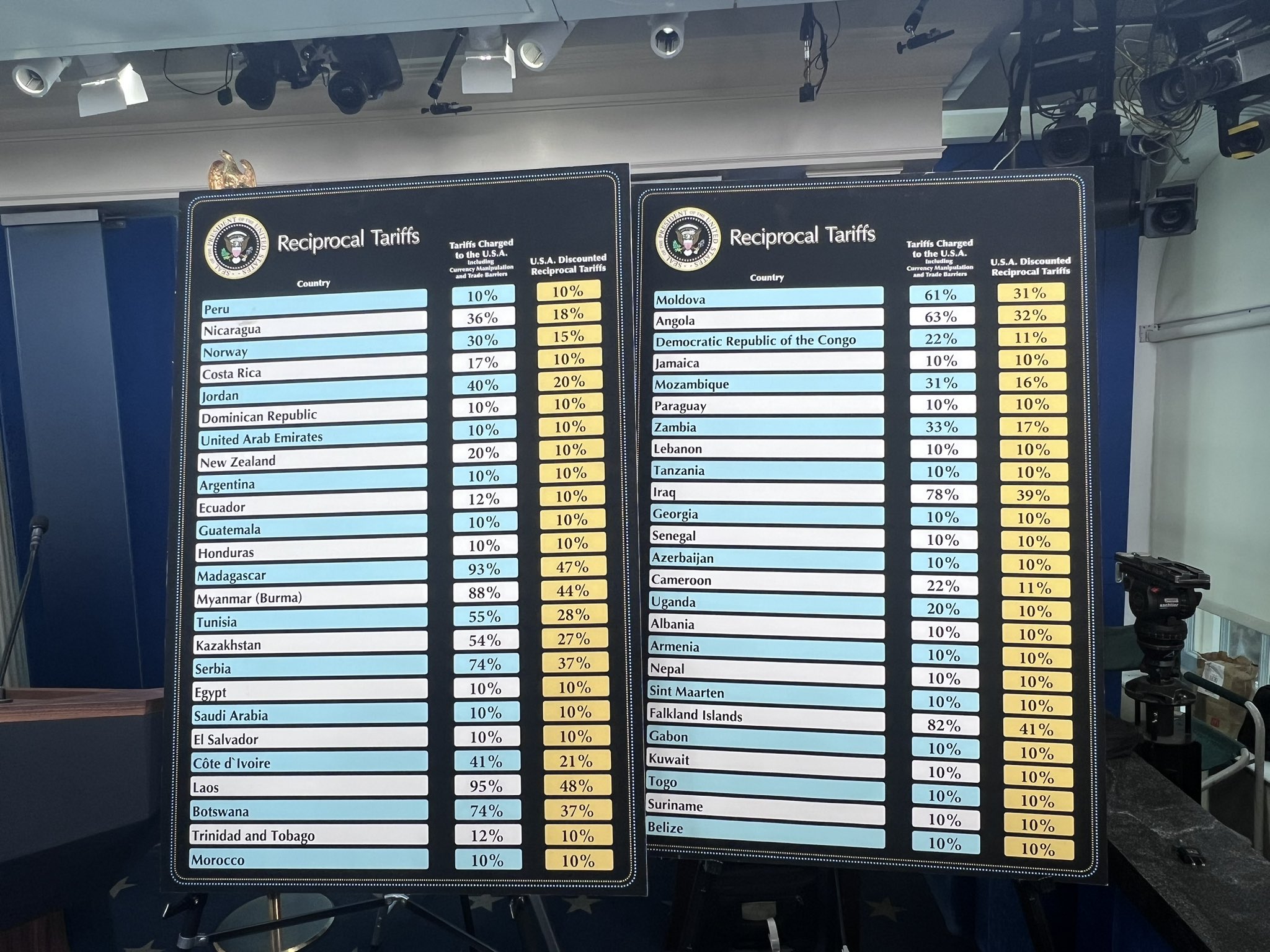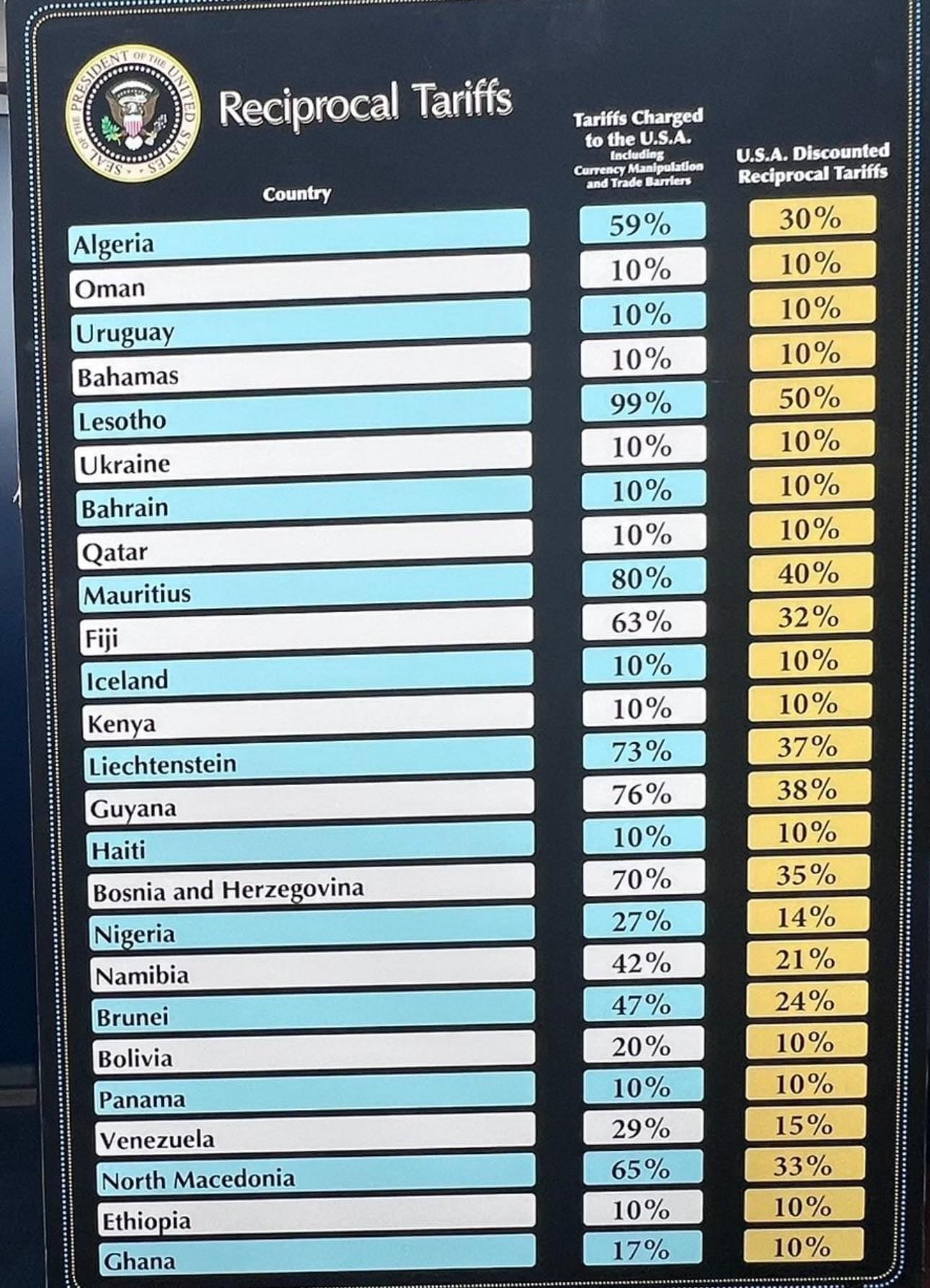Newsroom
At an official press conference, armed with a glossy chart and his signature bravado, former President Donald Trump unveiled what he described as "the greatest, most incredible, America-first tariff plan you've ever seen." Standing in the White House Rose Garden, he gestured dramatically to the chart, displaying the amounts the U.S. pays in tariffs to various countries. "Folks, look at this! Look at these numbers! It's unbelievable what we've been paying!"

And with that, Trump fired the opening shots of what is already shaping up to be a full-blown global trade war. Announcing a sweeping 10% tariff on most imported goods—and much steeper rates on selected countries—he promised to level the playing field. "For decades, our country has been looted, pillaged, raped, and plundered by nations near and far, both friend and foe alike," Trump declared, his voice echoing across the Rose Garden.
But while Trump painted the move as a win for American manufacturing, the rest of the world saw it as something closer to an economic earthquake.
"Folks, look at this! Look at these numbers! It's unbelievable what we've been paying!"
Markets reeled. As Asia digested the news, Japan's Nikkei index plunged to an eight-month low. European and U.S. stock futures nosedived as investors rushed toward gold and bonds—always a sign that the global financial community is preparing for a storm. And then came the diplomatic fallout.
China, already fuming over previous tariffs, wasted no time in vowing countermeasures. "We will respond with firm and necessary actions," Beijing stated, seemingly unfazed by U.S. Treasury Secretary Scott Bessent’s warning that retaliation would only escalate tensions. China is now facing a total of 54% in tariffs on many of its exports to the U.S., and it appears ready to fight back.
Trump's tariffs didn't just hit America’s biggest economic rival. Close allies like Japan and the European Union found themselves in the crosshairs as well, slapped with 24% and 20% tariffs, respectively. Even America's neighbors, Canada and Mexico, had already been enduring a 25% tariff on many of their goods.
European Commission President Ursula von der Leyen pulled no punches in her response. "These tariffs are a major blow to the global economy," she stated, warning that if negotiations failed, the EU was prepared to retaliate in kind. "The consequences will be dire for millions of people around the world."

But to Trump, the tariffs were merely a logical response to years of what he sees as unfair trade practices. "It’s simple, folks. They charge us, we charge them back. And guess what? We charge them more!" he boasted.
Not everyone was convinced. Within hours of his announcement, the U.S. Senate—led in part by Republican defectors—voted 51-48 to kill Trump’s Canadian tariffs. The House, still firmly under Republican control, was less likely to challenge him, but the fractures within his party were already showing.
Meanwhile, Trump’s chief economic advisor, Stephen Miran, took to Fox Business to reassure the public that, despite the chaos, it would all work out for the U.S. in the long run. "Are there going to be short-term bumps? Absolutely. But in the end, this will be great for America," Miran said on the network’s "Kudlow" program, seemingly unbothered by the global market carnage unfolding in real time.
One of the most immediate moves in Trump’s tariff strategy was his order to close a longstanding loophole—the "de minimis" rule—that had allowed low-value packages (under $800) from China and Hong Kong to enter the U.S. duty-free. "We're stopping the scam," Trump proclaimed, linking the closure to efforts to curb fentanyl trafficking. China, unsurprisingly, denied any wrongdoing.
And this may just be the beginning. More tariffs are reportedly in the works, with targets including semiconductors, pharmaceuticals, and possibly critical minerals. Trump has also moved forward with separate duties on auto imports, set to take effect this week.
Critics argue that the ripple effects could be devastating. Higher tariffs mean higher costs, and those costs often get passed down to consumers. Analysts warn that American families could soon be shelling out thousands more each year for everyday goods. The move also threatens to stall global economic growth—an issue that has already left manufacturing sectors worldwide struggling.
"Trump just hit Americans with the largest regressive tax hike in modern history," said Representative Gregory Meeks, the top Democrat on the House Foreign Affairs Committee. "His reckless policies are not only crashing markets, but they will disproportionately hurt working families."
Still, Trump remains undeterred. "We’re making America rich again, folks. Rich!" he said before dramatically holding up a pen and signing the latest tariff orders into law. The crowd of supporters erupted in applause.
*With information from Reuters

































